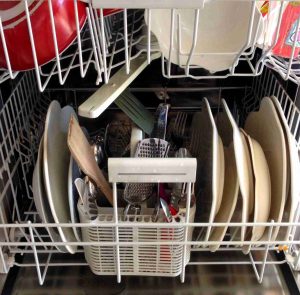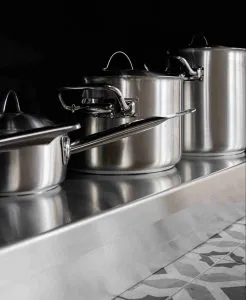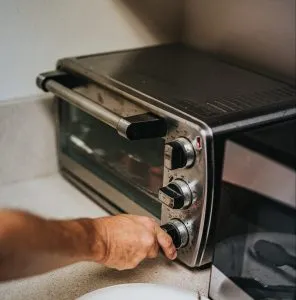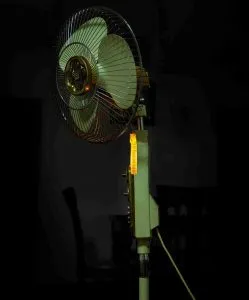Contents
ToggleGrill Battle: Heat and Flavor Showdown

Listen up, grill gurus, because we’re about to grill you on the hottest debate in outdoor cooking: gas vs electric grills.
Now, if you’re all about that smoky flavor and that sizzling sear, you might be a gas grill kind of person. These beasts use propane or natural gas to create an open flame that’s hotter than the sun (or at least, it feels like it when you’re standing too close). And that flame, my friends, is what adds that oh-so-delicious smoky flavor to your meat.
But, don’t count out electric grills just yet. Sure, they may not have that same smoky flavor, but they’ve got something else up their sleeves. Or, should we say, heating elements. These magical devices create heat that’s evenly distributed throughout the grill, so your food is cooked to perfection every time. And let’s be real, there’s nothing worse than a burger that’s charred on one side and raw on the other.
So, while gas grills may have that classic backyard barbecue charm, electric grills are like the unsung hero of outdoor cooking. They may not get all the attention, but they get the job done right. And, let’s face it, who doesn’t love perfectly grilled food? However, if you’re looking for a more traditional grilling experience, with the smoky flavor and aroma that comes with it, you might want to consider using a charcoal grill. While gas and electric grills are convenient and easy to use, they can’t quite replicate the authentic taste and texture that charcoal grilling can provide.
Convenience is Key: Gas vs. Electric Grills

Let’s talk about the elephant in the backyard: convenience.
Gas grills, you big burly beasts, you require a propane or natural gas tank that weighs as much as a baby elephant. Sure, you can roll those bad boys around, but you better have some biceps to spare. And let’s not forget about the maintenance, because no one likes a grumpy grill. You gotta clean those grates and burners, and don’t even get us started on those pesky flare-ups.
Now, let’s talk about electric grills. These little guys are like the runt of the litter, but don’t let their size fool you. They may not have the same heft as their gas counterparts, but they make up for it in portability. You can take them with you anywhere, from the park to the beach to your neighbor’s backyard (with their permission, of course), carrying them in a bag that you can simply get from Amazon. And when it comes to maintenance, they’re as easy as pie. Just wipe them down and they’re good to go.
So, if you’re all about that “grill and go” lifestyle, electric grills are the way to go. No heavy lifting required, no maintenance headaches, just deliciously grilled food wherever your heart desires.
Grilling in Style: Space and Size Considerations

Size matters so let’s talk about it!
Gas grills are the big dogs. They come in all shapes and sizes, from small tabletop models to massive, professional-grade monsters that could cook up a whole herd of burgers in one go. But with great size comes great responsibility, and gas grills require a propane or natural gas tank to operate, which means you need some extra storage space. But if you’re the kind of person who likes to throw a backyard bash and feed the whole neighborhood, then a gas grill is your ticket to barbecue bliss.
Electric grills… These little guys are the cute, compact cousins of the gas grill world. They’re perfect for those of us with limited space or for folks who live in apartments or condos where outdoor space is at a premium. They come in all sizes too, from small tabletop models that fit perfectly on a balcony to larger standalone models that can still be easily moved around. Plus, they’re lightweight and easy to take with you wherever you go, so you can grill up some deliciousness on the beach or at your next tailgate party.
When it comes to choosing the right size for your grill, you need to think about how many people you’re cooking for and how much space you have. If you’re feeding an army and have outdoor space to spare, go for a gas grill. But if you’re more of a solo griller or have limited outdoor space, an electric grill might be the way to go. And don’t forget about the cooking area – gas grills generally have more space to work with, but electric grills are more efficient at using the space they do have.
So whether you’re a big-time grill master or a city-dwelling grill enthusiast, there’s a grill out there for everyone. Just remember, size matters, but it’s not everything – it’s how you use it that counts. Happy grilling, friends!
Safety First

Would you agree that nothing ruins a backyard barbecue like a trip to the emergency room?
Now, gas grills, you fiery beasts, we gotta talk about that open flame. It’s like a beautiful dance between the meat and the heat, but it can also be dangerous if you’re not careful. And let’s not forget about those pesky gas leaks and explosions, because no one wants to see their grill go up in flames (unless you’re a pyromaniac, but that’s a whole other issue).
Enter electric grills, the safety queens of the backyard. They may not have that same fiery flair, but they’ve got something better: no open flame. That means less risk of fire, less risk of singed eyebrows, and less risk of accidentally burning down your neighbor’s fence. And let’s not forget about those gas leaks and explosions, because with electric grills, you can kiss those worries goodbye.
So, if you’re all about that “safety first” mentality, electric grills are the clear winner. No flames, no gas, no problem. Just deliciously grilled food without the risk of a backyard inferno.
Sizzling Success: How Gas and Electric Grills Cook Food

Which grill reigns supreme in this regard when it comes to taste?
Gas grills are like the rock stars of the grilling world. They produce that smoky, charred flavor that many people crave. It’s like a flavor explosion in your mouth. But let’s be real, the intense heat of the open flame can be a bit of a diva. It requires constant monitoring to make sure your food doesn’t dry out or turn into a burnt offering to the grill gods.
What about electric grills? These guys are like the reliable, steady eddies of the grilling world. They may not produce that same smoky flavor as gas grills, but they cook food evenly and thoroughly every time. No drama, no fuss, just perfectly cooked food. And let’s not forget about their delicate touch, making them the go-to choice for finicky foods like fish that just can’t handle the heat of a gas grill.
So, which grill is right for you? It all depends on your personal taste and grilling style. If you’re all about that smoky, charred flavor and don’t mind playing the grill monitor, go for a gas grill. But if you want to sit back, relax, and let your grill do the work, electric is the way to go. Either way, get ready for some mouthwatering meals on the grill. Burgers, steaks, veggies, seafood – the possibilities are endless. So, let’s fire up that grill, grab those tongs, and get grilling!
Grill on a Budget: Gas vs. Electric Grill Prices

Well, well, well, look who’s got a fat wallet to burn on their grill. That’s right, gas grills, we’re talking about you. You’re like the fancy sports car of the grilling world, with your sleek design and your impressive flames. But let’s not forget about that hefty price tag, which can leave even the most dedicated grill master feeling a little light in the wallet. And don’t even get us started on those ongoing expenses, because let’s face it, propane and natural gas ain’t cheap.
Now, let’s talk about electric grills. These little guys may not have the same impressive flames as gas grills, but they’re like the reliable family car of the grilling world. They’re affordable upfront, which means you can spend your hard-earned cash on other important things, like a lifetime supply of barbecue sauce. And the best part? No ongoing expenses. That’s right, no propane or natural gas to refill, no expensive tanks to replace. It’s like having a grill that pays for itself over time.
So, if you’re all about that budget-friendly lifestyle (and who isn’t?), electric grills are the clear winner. Save your cash for something more important, like a giant inflatable unicorn for your pool, and still enjoy delicious grilled food. It’s a win-win, folks.
The Cost of Grilling: Gas vs. Electric Grill Running Costs

We all know grilling is a worthwhile investment for those delicious, perfectly cooked meals, but it’s important to understand the ongoing costs too.
Let’s start with gas grills. These bad boys typically run on propane or natural gas, and we all know that ain’t cheap. Depending on where you live, a 20-pound tank of propane can set you back $20 to $30. As for natural gas, well, the price varies depending on your area and your grill’s burners’ efficiency. But one thing’s for sure, gas grills can be pricier to run in the long run because of the ongoing cost of fuel.
Now let’s talk about electric ones. These babies are powered by electricity, which is generally cheaper than propane or natural gas. The cost of electricity varies depending on your area, but on average, it’s around $0.12 per kilowatt-hour. The beauty of these grills is that they’re more energy-efficient than gas ones, which means they use less energy to produce the same amount of heat. And that, my friends, can result in lower operating costs over time.
But wait, there’s more! The size of your grill also affects the cost of running it. The larger your grill, the more fuel or electricity it’ll require to heat up and maintain a consistent temperature. So, if you’re looking to save some bucks, you may want to consider a smaller grill. And of course, using your grill more frequently will increase the operating costs. But let’s be honest, who can resist the temptation of grilled goodness?
So, there you have it, folks, the cost of running your grill depends on a few factors, but with some smart choices, you can enjoy delicious grilled meals without breaking the bank.
Heat Things Up: Temperature Range

Temperature is serious stuff, folks. You don’t want to end up with a charred piece of meat that could be used as a hockey puck, do you? No, you want your meat cooked to perfection, with the right amount of tenderness and flavor. So, let’s break down the differences between gas and electric grills in terms of temperature control.
Gas grills as we mentioned earlier are like the Ferraris of grilling. They can reach temperatures of 500-600°F or higher, which is perfect for searing meats and achieving that crispy, caramelized crust. Plus, they come with heat control knobs that give you precise control over the cooking process. It’s like having a dashboard in front of you, but instead of speed and RPMs, you have temperature and deliciousness. However, gas grills can be a bit of a challenge for low and slow cooking. It’s like driving a Ferrari on a winding mountain road – it can be done, but it requires skill and finesse.
Electric grills, on the other hand, are more like a reliable sedan. They have a lower temperature range, typically ranging from 200-400°F. This is perfect for low and slow cooking, making it great for dishes like ribs and brisket. Plus, they come with temperature control buttons that make it easy to adjust the heat as needed. It’s like driving a boring sedan on a long, straight highway – easy to handle and predictable. However, electric grills have less ability to sear meats due to their lower temperature range. Imagine killing that Lincoln on a race track – it can be done, but it’s not as thrilling.
When it comes to temperature control, you need to weigh the pros and cons of each type of grill. Gas grills are great for achieving high temperatures and searing meats, but may not be as ideal for low and slow cooking. Electric grills are perfect for low and slow cooking, but may not be able to achieve the same high temperatures or sear marks as a gas grill.
In the end, it all comes down to what you want to cook and how you want to cook it. Are you looking to create that perfect sear on your steak, or do you want to slow-cook some delicious ribs? Do you want a Ferrari or a reliable sedan? The choice is yours, my friend. So, rev up your grill, and let’s get cooking!
Rain or Shine: Weather Effects on Grills

Weather conditions – the one thing we can never control, no matter how good our grilling skills are. So, let’s dive into how Mother Nature can affect our gas and electric grills.
Gas grills are like that friend who’s always complaining about something – in this case, high winds. Strong gusts can mess with the grill’s ability to maintain a consistent temperature, leading to uneven cooking. And let’s not forget about heavy rain or snow – they can make it tough to light the grill, causing problems with ignition. Have you ever tried to start a campfire in a hurricane? – not fun.
Talk about electric grills – the cool and calm buddy who never gets rattled. They don’t care about wind or rain because they don’t require a flame to light up. However, extreme cold temperatures can put a damper on their performance, making it difficult to maintain a consistent cooking temperature. It’s like they’re saying, “I’m good, bro, but can you turn up the heat?
But fear not my grill-loving friends, there are ways to combat Mother Nature’s wrath. For gas grills, consider using a wind guard or find a sheltered spot to protect it from high winds. And for electric grills, keep the grill covered when not in use to prevent damage from rain or snow. In colder weather, preheat the grill for a bit longer to ensure it’s ready to cook up a storm.
So, whether you’re a gas or electric grill master, don’t let the weather rain on your parade. Take the necessary precautions and grill on, my friends!
Grilling Maintenance 101

Yeeeeeeeees… the joy of maintaining your grill! It’s like having a pet that you get to eat. But seriously, whether you have a gas or electric grill, you want it to perform at its best, and that requires proper maintenance.
Again – gas grills first. They’re a bit like a high-maintenance partner. After every use, you need to clean the grates and burners to remove any leftover food particles or grease. And don’t forget to clean the interior of the grill, including the drip tray, to prevent the buildup of grease and debris that can affect the grill’s performance. It’s like you’re their housekeeper! And if that’s not enough, gas grills also require regular inspections of the gas lines and connections to make sure they’re not leaking. You know, like a partner who needs constant attention.
Secondly – electric grills. They’re like the low-maintenance partner you’ve always wanted. After every use, all you have to do is clean the grates and drip tray to remove any food particles or grease. And occasionally, you’ll want to clean the interior of the grill to prevent the buildup of debris. Easy-peasy! But don’t get too comfortable, because you’ll still want to inspect the power cord for any signs of damage or wear and tear, just to make sure they’re safe. So, they’re like the partner who’s low-maintenance but still has some quirks you have to deal with.
Regardless of which type of grill you have, both may require periodic maintenance, such as replacing the grates or burners. But don’t worry, it’s not like replacing a major organ or anything. Gas grills may also require additional maintenance, such as replacing the propane tank or natural gas line. It’s like they have their own medical bills.
In summary, proper maintenance is essential for both gas and electric grills to ensure they operate efficiently and safely. So, if you want to enjoy delicious, perfectly cooked food from your grill for years to come, make sure to follow the manufacturer’s instructions and regularly clean and inspect your grill. And don’t forget to give it a little love and attention, just like your favorite pet or partner.
Frequently Asked Questions
Does food taste good on the electric grill?
Are you wondering if food cooked on an electric grill can really pack a punch of flavor? Well, let me tell you, it’s like getting hit with a bolt of lightning in the taste buds! Some folks might say that food cooked on a gas grill is like a roaring thunderstorm, while the food cooked on an electric grill is like a gentle summer rain. But I say, why settle for a drizzle when you can have an electric storm of flavor?
Sure, electric grills may not have the same sizzle and pop as their gas counterparts, but don’t underestimate their ability to electrify your taste buds. The right seasonings and marinades can turn even the most unassuming piece of meat into a flavorful lightning rod that’ll leave you thunderstruck.
And don’t worry, you won’t get zapped if you give that electric grill a try. In fact, you might just feel like a mad scientist in the kitchen, harnessing the power of electricity to create culinary masterpieces that’ll leave your guests feeling positively charged.
So go ahead, take that electric grill for a spin. Who knows? You might just discover a new way to cook that’s truly electrifying. And when your friends ask you how you did it, just tell them it was a stroke of genius – or should I say, a bolt of genius?
What is the point of an electric grill?
The point of an electric grill is to provide a convenient and efficient way to cook delicious food without the hassle of dealing with gas or charcoal. Electric grills are powered by electricity, which means they heat up quickly and evenly, providing consistent and controlled cooking temperatures.
One of the benefits of electric grills is that they can be used both indoors and outdoors, making them a great option for people who live in apartments or have limited outdoor space. They also tend to be more affordable and require less maintenance than gas or charcoal grills, making them a popular choice for those who want to grill on a budget.
Additionally, electric grills are generally considered to be a healthier option than other types of grills because they produce less smoke and therefore fewer carcinogens. They’re also more environmentally friendly since they don’t produce the same level of emissions as gas or charcoal grills.
How do electric grills work?
Electric grills work by using a heating element, usually made of metal, that heats up when an electric current is passed through it. This heating element is often located beneath a metal grate or cooking surface where the food is placed to be grilled.
When the heating element is turned on, it begins to heat up the metal grate or cooking surface, which in turn heats up the food that is placed on it. Unlike gas or charcoal grills, there are no flames involved, so there is no need to worry about flare-ups or uneven heating.
Many electric grills also come with temperature controls, allowing you to adjust the heat to the desired level for the food you’re cooking. This makes it easy to achieve precise cooking temperatures and cook your food to perfection.
One of the benefits of electric grills is that they heat up quickly and are generally very easy to use. They also tend to be more energy-efficient than other types of grills, since they only use the amount of electricity needed to heat the heating element and cook the food.
Are electric grills safer than propane grills?
Electric grills are generally considered to be safer than propane grills for several reasons. First and foremost, electric grills don’t involve an open flame or combustible fuel, which greatly reduces the risk of fire or explosions.
Additionally, electric grills tend to produce less smoke and fewer harmful emissions than propane grills, which can be important for those with respiratory issues or concerns about air quality. There’s also no risk of gas leaks with electric grills, which can be a major concern with propane grills if the fuel tank is not properly maintained or if there’s a malfunction in the gas line.
That being said, it’s important to remember that all grills can pose some level of risk if not used properly. It’s important to follow all safety instructions and precautions when using any type of grill, whether it’s electric or propane, and to always keep a fire extinguisher nearby just in case.
CONCLUSION
Gas Grills
| ADVANTAGES ✔ Produces high heat output, allowing for faster cooking times ✔ Provides a traditional smoky flavor to food ✔ Easy to control temperature and adjust the flame ✔ Generally larger cooking area than electric grills ✔ Can be used during power outages ✔ Easy to start up with the push of a button |
| DISADVANTAGES ❌ Typically more expensive to purchase than electric grills ❌ Requires regular maintenance and cleaning of the burners and gas lines ❌ Fuel (propane or natural gas) can be expensive, especially for frequent grillers ❌ May produce uneven heat distribution, leading to inconsistent cooking results ❌ Windy weather can make it challenging to maintain a consistent temperature |
Electric Grills
| ADVANTAGES ✔ Generally more affordable to purchase than gas grills ✔ Heats up quickly and maintains a consistent temperature ✔ Easy to clean and maintain ✔ More energy-efficient, resulting in lower operating costs over time ✔ Does not produce smoke or flare-ups, making it ideal for indoor use ✔ Safe to use indoors, as there are no emissions |
| DISADVANTAGES ❌ Produces less heat output than gas grills, leading to longer cooking times ❌ Does not provide the traditional smoky flavor to food ❌ Limited cooking area, generally smaller than gas grills ❌ Requires an electrical outlet to operate, limiting mobility ❌ May struggle in extreme cold temperatures |
Well, we’ve explored the heated debate between gas and electric grills. It’s clear that both have their pros and cons, but at the end of the day, it all comes down to personal preference (and maybe budget, too).
Gas grills are great for those who enjoy the smoky flavor of traditional grilling, but they require more maintenance and can be affected by adverse weather conditions. Electric grills, on the other hand, are easy to use and maintain, but they might not give you that classic grilled taste.
So, whether you prefer to “set it and forget it” with an electric grill or embrace the challenge of maintaining the perfect temperature with a gas grill, the most important thing is that you get out there and start grilling! After all, nothing brings people together like delicious food cooked outdoors, unless it’s a giant spider on the grill, then we suggest just ordering takeout.























































